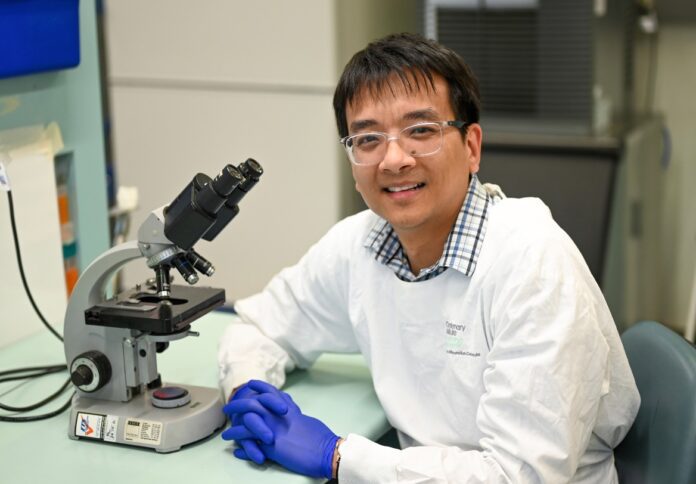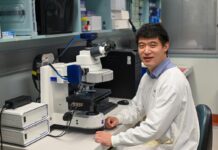
Researchers at the Centenary Institute have identified a potential breakthrough in the treatment of hepatocellular carcinoma (HCC), the most prevalent form of liver cancer and the third leading cause of cancer-related deaths worldwide.
The study, spearheaded by the Centenary Institute, unveiled a therapeutic strategy involving the utilisation of a novel drug known as Blockmir CD5-2, in conjunction with an anti-programmed cell death protein 1 antibody (anti-PD1 antibody).
This innovative combination has demonstrated remarkable effectiveness in diminishing the size of liver tumours in laboratory mice, the institute said in a news release.
Dr Ken Liu, lead author of the study and a researcher at the Centenary Institute’s Centre for Cancer Innovations, described the findings as groundbreaking and potentially transformative for advanced liver cancer treatment.
“The synergistic effect of the drugs Blockmir CD5-2 and anti-PD1 antibody significantly reduced the size of liver tumours in mice in our study. We believe that this dual-drug approach enhances the immune system, rendering it more efficient in combatting cancer cells and reducing tumours,” explained Dr Liu.
Dr Liu further highlighted the unique challenges posed by liver tumours, which often feature abnormal blood vessels and oxygen-depleted environments.
According to him, these factors contribute to immune system suppression and hinder the body’s natural defence against cancer.
“Blockmir CD5-2 addresses this challenge by promoting the health of tumour blood vessels through the activation of a protein called VE-Cadherin. This leads to improved blood supply and oxygen levels within the tumours,” added Dr Liu.
“The optimised conditions within the tumour microenvironment enable cancer-targeting immune cells, specifically cytotoxic T cells, to infiltrate and effectively combat the disease,” he said.
The researchers emphasised the critical role played by the anti-PD1 antibody in this innovative treatment approach.
By blocking a protein that inhibits the immune response, the antibody empowers the immune system to combat cancer more effectively, according to researchers.
Senior authors of the study, Professor Jennifer Gamble from the Centenary Institute’s Centre for Healthy Aging and Professor Geoff McCaughan from the Centre for Cancer Innovations, underlined the current limitations of available liver cancer treatments.
They expressed optimism about the new therapeutic approach’s potential to address this formidable disease effectively.
The study’s findings have been published in the journal Frontiers in Immunology, offering a ray of hope for liver cancer patients worldwide.


















